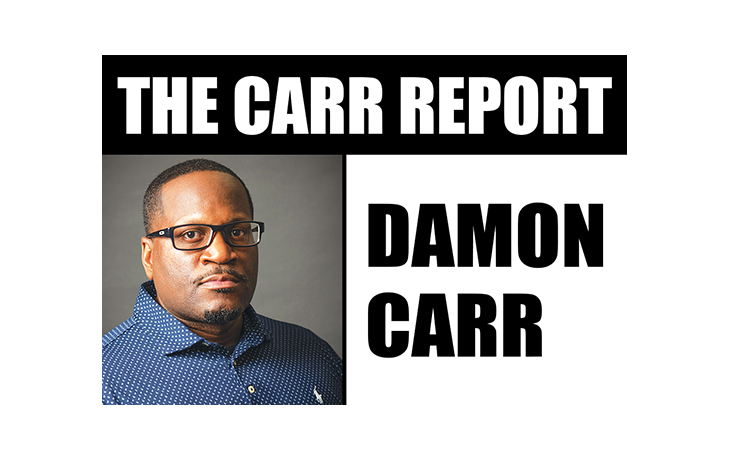Let’s be real—managing your money in today’s economy feels like trying to juggle flaming torches while riding a unicycle. Paychecks might be going up, but so are prices, layoffs and financial uncertainty. The latest news in personal finance is a mixed bag—some wins, some losses, and a lot of changes that could affect your wallet. Here’s what you need to know this week.

Americans Are Earning More but Spending Less—Why?
In January, personal incomes shot up by 0.9 percent, the biggest jump in a year. But did Americans take that extra cash and go on a spending spree? Nope. Personal spending actually dropped by 0.2 percent.
So, what’s going on? A few things:
- Auto sales are down—High interest rates and expensive car prices mean fewer people are financing new vehicles.
- The weather played a role—Harsh winter storms kept shoppers indoors.
- Economic uncertainty—With talk of tariffs, possible job cuts, and still-high inflation, many people are holding onto their money instead of spending freely.
This cautious approach isn’t necessarily a bad thing. Keeping your spending in check while padding your savings and investments is a smart move, especially when financial uncertainty is looming.
Inflation Is Forcing Big Life Decisions
A Wells Fargo study found that three out of four Americans are cutting back on spending due to inflation. But it’s not just about skipping a few takeout meals—people are delaying major life plans.
- Buying a home? Not right now.
- Taking a big vacation? Maybe next year.
- Retiring? Not anytime soon.
For most households, essentials like groceries, utilities and rent are eating up a bigger chunk of their budget. Inflation may be slowing down, but prices aren’t dropping back to pre-pandemic levels. The message here? Adapt. Reassess your financial goals, find ways to cut costs, and make sure your money is working for you.
CFPB Drops Capital One Lawsuit—What This Means for Consumers
The Consumer Financial Protection Bureau (CFPB), which is supposed to protect consumers from shady banking practices, is backing off a lawsuit against Capital One. The case accused Capital One of misleading customers about interest rates on savings accounts.
Why does this matter?
- Consumer watchdogs fear this signals a rollback in consumer protections, meaning banks and credit card companies could start playing more games with fees and rates.
- If Capital One was misrepresenting interest rates, how many other banks are doing the same thing?
Bottom line: Always read the fine print, shop around for the best rates, and stay informed. You can’t assume the government will always have your back.
Millennials Are Falling Behind on Retirement—Time to Fix It
If you’re a millennial (29 to 44 years old), here’s a wake-up call: 66 percent of working millennials have nothing saved for retirement. That’s a problem.
Experts say now’s the time to get serious about building your retirement nest egg. Here’s how:
- Start with your 401(k) or IRA—Even small contributions add up over time.
- Eliminate high-interest debt—Credit card interest will eat your wealth alive.
- Build an emergency fund—If something goes wrong, you won’t have to raid your retirement savings.
- Time is still on your side, but the longer you wait, the harder it gets.
Federal Judge Blocks Mass Firings of Federal Workers
The Trump administration tried to push through a mass firing of probationary federal employees, but a judge in California shut it down. This ruling has some major implications:
- It affects multiple government agencies, including the National Oceanic and Atmospheric Administration.
- It comes right when the student loan repayment application was removed, adding even more financial uncertainty for millions of borrowers.
For government employees, this is temporary relief, but job security in federal roles remains shaky. If you’re a federal worker, now’s the time to update your resume and have a financial backup plan in case things change.
Social Security Facing Major Cuts
The Social Security Administration has announced plans to eliminate 7,000 jobs. What does that mean for you?
- Longer wait times for services—If you need to apply for benefits, expect delays.
- More pressure on the system—Fewer workers mean less oversight and potential processing errors.
- If you’re approaching retirement or rely on Social Security, keep a close eye on these changes. You may need alternative sources of income if benefits get disrupted.
Credit Freezes Are on the Rise—Should You Do One?
With identity theft on the rise, more Americans are freezing their credit. A credit freeze prevents thieves from opening accounts in your name and is one of the best ways to protect yourself.
- It’s free to freeze and unfreeze your credit.
- It doesn’t affect your credit score.
- It blocks unauthorized credit checks.
If you don’t plan to apply for new credit soon, freezing your credit is a smart move. It’s a small step that can prevent a massive headache later.
The financial landscape is shifting fast. Some people are making moves, while others are being forced to adjust. The key is to stay proactive, plan ahead, and make sure your money is working for you.
- If you’re earning more, be smart about it. Save and invest, don’t just spend.
- If inflation is hitting you hard, adjust your spending and savings goals.
- If retirement feels far away, start preparing now.
- If you’re worried about fraud, take steps to protect yourself.
Times are uncertain, but those who plan wisely will come out ahead. Take charge of your money and don’t wait for the economy—or the government—to do it for you.
(Damon Carr, Money Coach and Tax Pro can be reached at 412-216-1013 or visit his website at www.damonmoneycoach.com)